Building Your Overlanding Toolkit: Essential Tools for Any Off-Road Adventure

When it comes to overlanding, having the right toolkit can mean the difference between an amazing adventure and a frustrating ordeal. Whether you're a seasoned off-roader or just starting out, being prepared for unexpected situations is key to staying safe and enjoying the journey. From basic tools to essential recovery gear, this guide will help you build an overlanding toolkit that has everything you need for any off-road adventure.
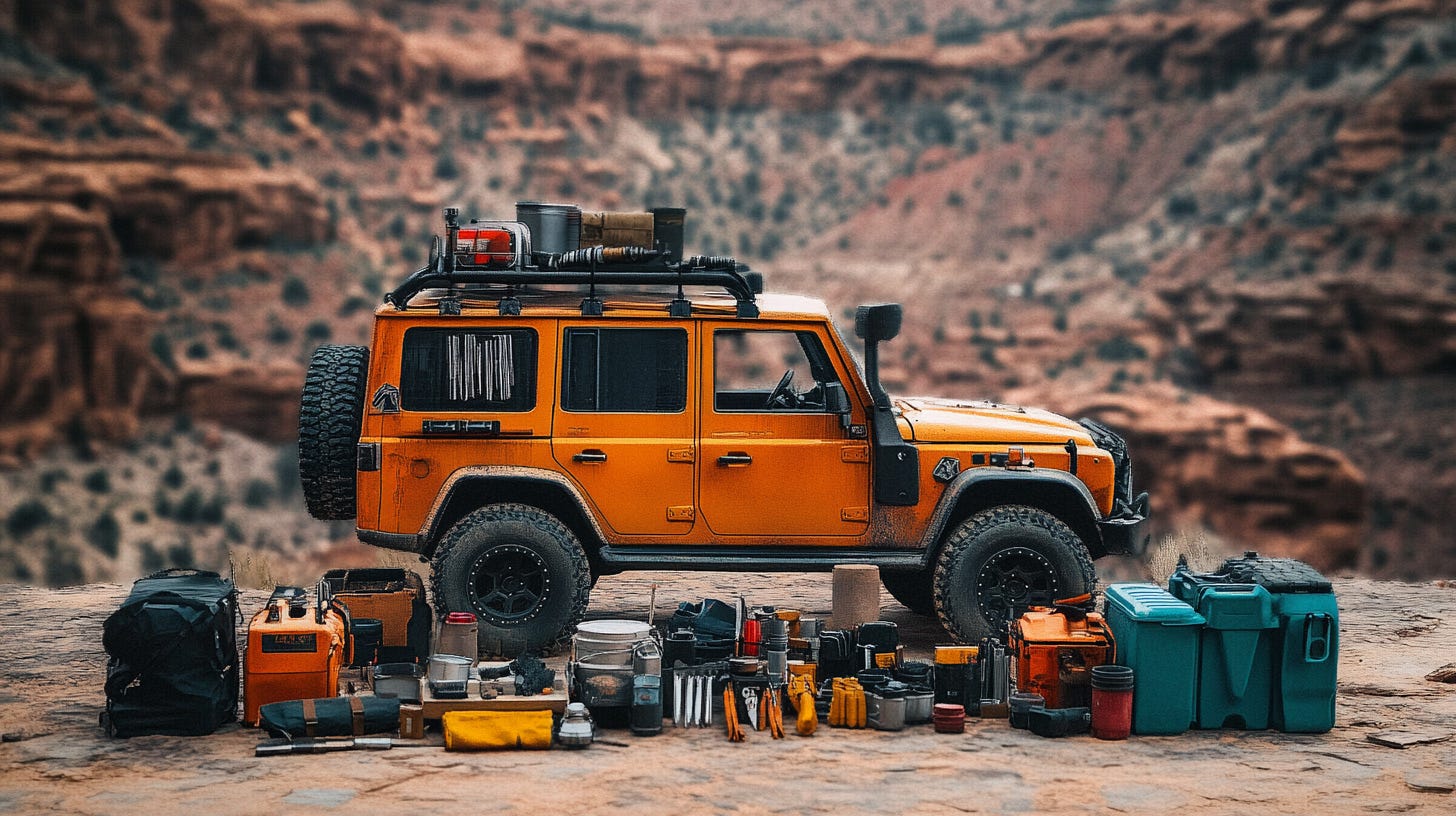
1. Basic Hand Tools 🔧
The foundation of any overlanding toolkit starts with a solid set of basic hand tools. These tools can help you handle minor repairs and adjustments on the go, ensuring you can fix issues quickly and keep moving.
- Socket Set: A good-quality socket set (both metric and SAE) is essential for working on bolts and nuts of various sizes.
- Wrenches: Include an assortment of open-end/box-end wrenches or an adjustable wrench. These are handy for tightening and loosening bolts.
- Pliers: A pair of needle-nose pliers, slip-joint pliers, and locking pliers are indispensable for holding, bending, or cutting wires and small parts.
- Screwdrivers: Pack a variety of flathead and Phillips screwdrivers. A multi-bit screwdriver is a good way to save space.
- Hammer: A rubber mallet and a regular hammer can help you deal with parts that need a little persuasion.
- Hex Keys (Allen Wrenches): Many vehicle components require hex keys for adjustments—include a set with both metric and SAE sizes.
2. Recovery Gear 🛠️
When venturing off-road, getting stuck is sometimes inevitable, but with the right recovery gear, you can get yourself out of tricky situations and back on the trail.
- Traction Boards: Traction boards like Maxtrax or X-Bull are a must-have for gaining traction when your vehicle is stuck in sand, mud, or snow.
- Tow Straps and Shackles: A recovery strap (or snatch strap) and D-ring shackles allow another vehicle to help pull you out. Make sure to use rated recovery points on your vehicle to avoid damage.
- Winch: If your vehicle is equipped with a winch, it can be a lifesaver when traveling alone. Be sure to carry a tree saver strap, snatch block, and winch damper for safe use.
- Shovel: A compact, foldable shovel can help dig out tires or clear a path when stuck in soft terrain.
- Gloves: Heavy-duty work gloves are important for handling winch lines, tow straps, and other tools, protecting your hands from cuts and abrasions.
3. Tire Repair and Maintenance 🛞
Your tires are your lifeline while overlanding, so being prepared to handle tire issues is crucial.
- Tire Repair Kit: A tire plug kit allows you to temporarily fix punctures without removing the tire. Include a valve core tool and spare valve cores as well.
- Air Compressor: A portable air compressor is necessary for airing down your tires for off-road traction and then reinflating them for highway driving. The VIAIR 400P is a popular choice for overlanders.
- Tire Deflators: Tire deflators make it easy to reduce tire pressure when tackling loose sand, mud, or rocky terrain. This helps improve traction and ride quality.
- Spare Tire and Jack: Always carry a full-size spare tire and a reliable jack—like a Hi-Lift Jack—along with the tools needed to change a tire.
4. Electrical and Emergency Supplies ⚡
Electrical problems and unexpected emergencies can arise at any time, so it's important to have supplies on hand to deal with them.
- Jumper Cables: Heavy-duty jumper cables or a portable jump starter can help you get moving if your battery dies unexpectedly.
- Multimeter: A multimeter helps troubleshoot electrical issues, such as diagnosing battery problems or identifying faulty wiring.
- Electrical Tape and Wire: Carry electrical tape, spare wire, and connectors to repair damaged wiring or make temporary fixes.
- Fire Extinguisher: A fire extinguisher is an essential safety item in case of a vehicle fire. Make sure it’s rated for Class A, B, and C fires.
- First Aid Kit: A well-stocked first aid kit is crucial. Include items like bandages, antiseptics, gauze, pain relievers, and any personal medications you may need.
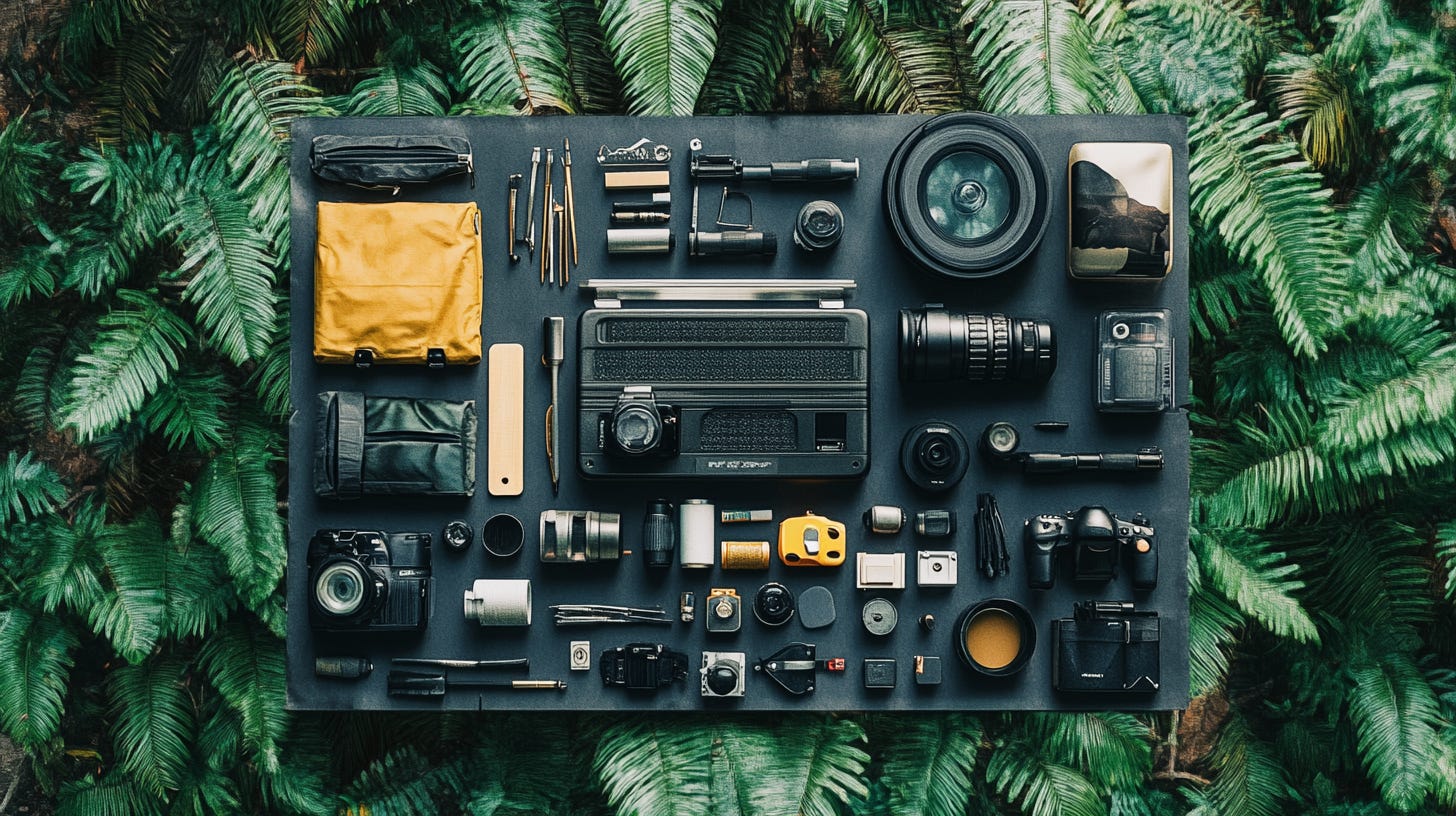
5. Specialty Tools and Gear 🔩
Depending on your vehicle and the trails you're tackling, certain specialty tools can be invaluable.
- Breaker Bar: A breaker bar provides extra leverage for loosening stubborn bolts, especially lug nuts when changing a tire.
- Torque Wrench: A torque wrench ensures that bolts are tightened to the correct specifications, which is particularly important for critical components like wheel lug nuts.
- Fluids and Lubricants: Bring extra engine oil, coolant, brake fluid, and WD-40. These can help resolve minor issues until you can get to proper repairs.
- Zip Ties and Duct Tape: Zip ties and duct tape are versatile and can be used for temporary fixes to hold parts in place or secure loose wires.
- Ratchet Straps: Ratchet straps can secure gear or help hold vehicle components in place if something breaks loose.
6. Organizing Your Toolkit 🧰
Having all the right tools is one thing, but keeping them organized ensures you can find what you need when you need it.
- Tool Roll: A tool roll is a compact and efficient way to keep hand tools organized and easy to access.
- Plastic Storage Bins: Heavy-duty plastic bins or stackable drawers can help keep recovery gear, spare parts, and other tools organized in your rig.
- Label Everything: Labeling compartments and bins helps keep everything in its place, which is especially important when you're dealing with limited space in your vehicle.
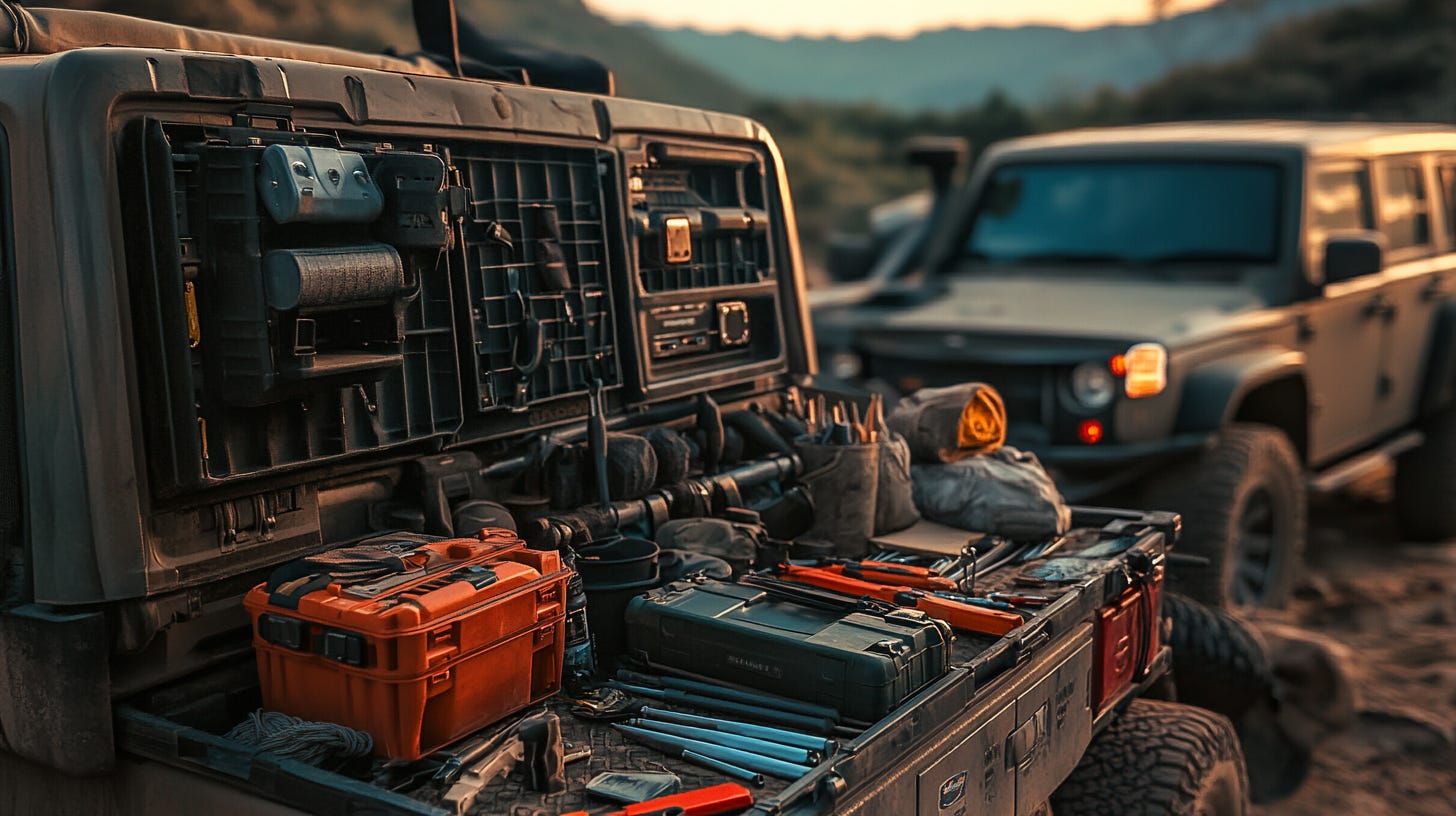
Final Thoughts
Building the perfect overlanding toolkit takes time, but with the essentials listed here, you’ll be well-prepared to tackle the unexpected challenges of off-road travel. From basic hand tools and recovery gear to tire maintenance supplies and emergency essentials, each item plays a crucial role in keeping you safe and ensuring you can handle whatever the trail throws your way.
Remember, the goal is to be self-sufficient and ready to tackle minor repairs or obstacles without needing to call for help. With a well-equipped toolkit, you can feel confident exploring even the most remote trails, knowing you have the tools to handle any situation.
Happy trails, and stay prepared! 🚙🔧✨
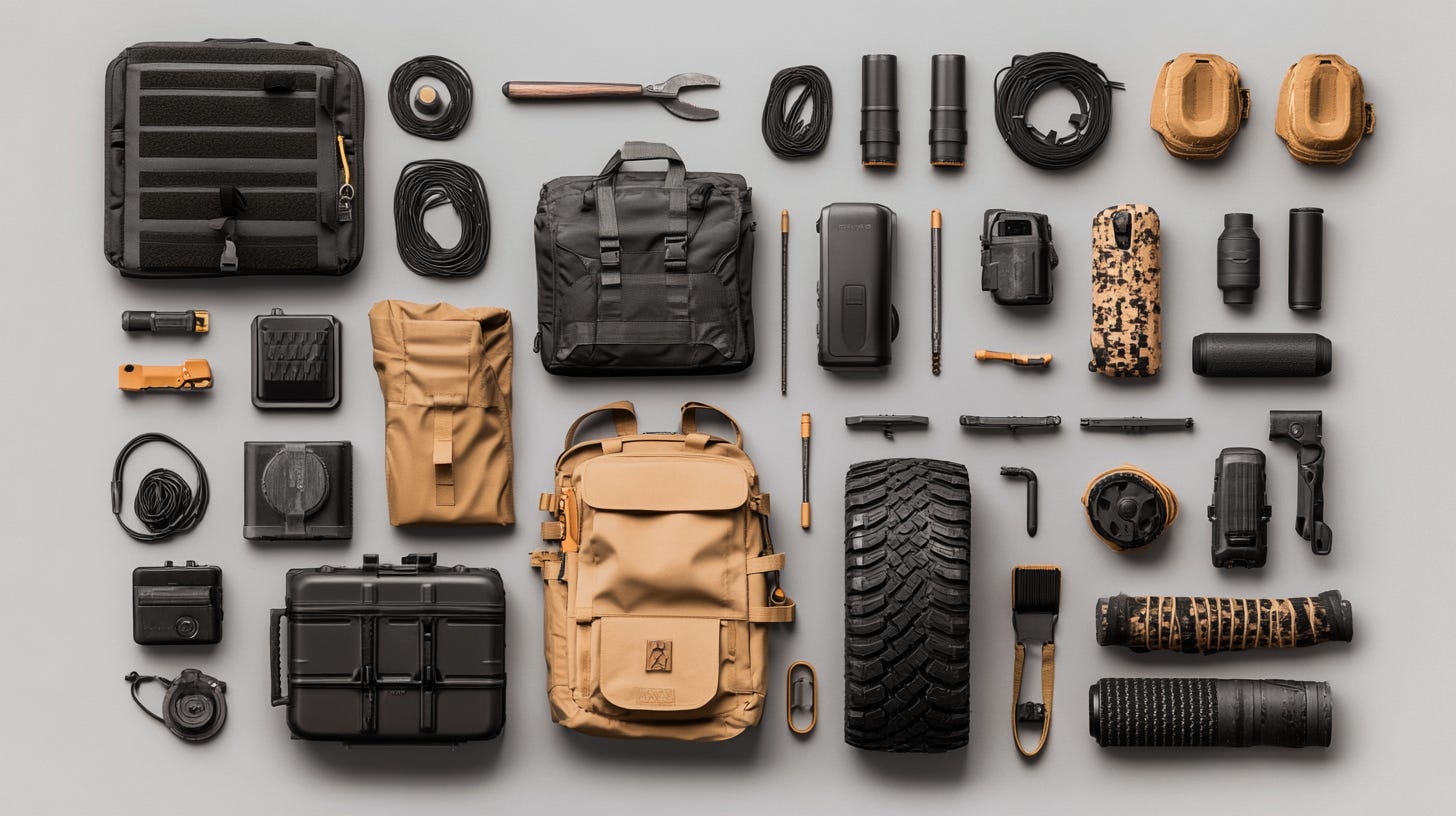
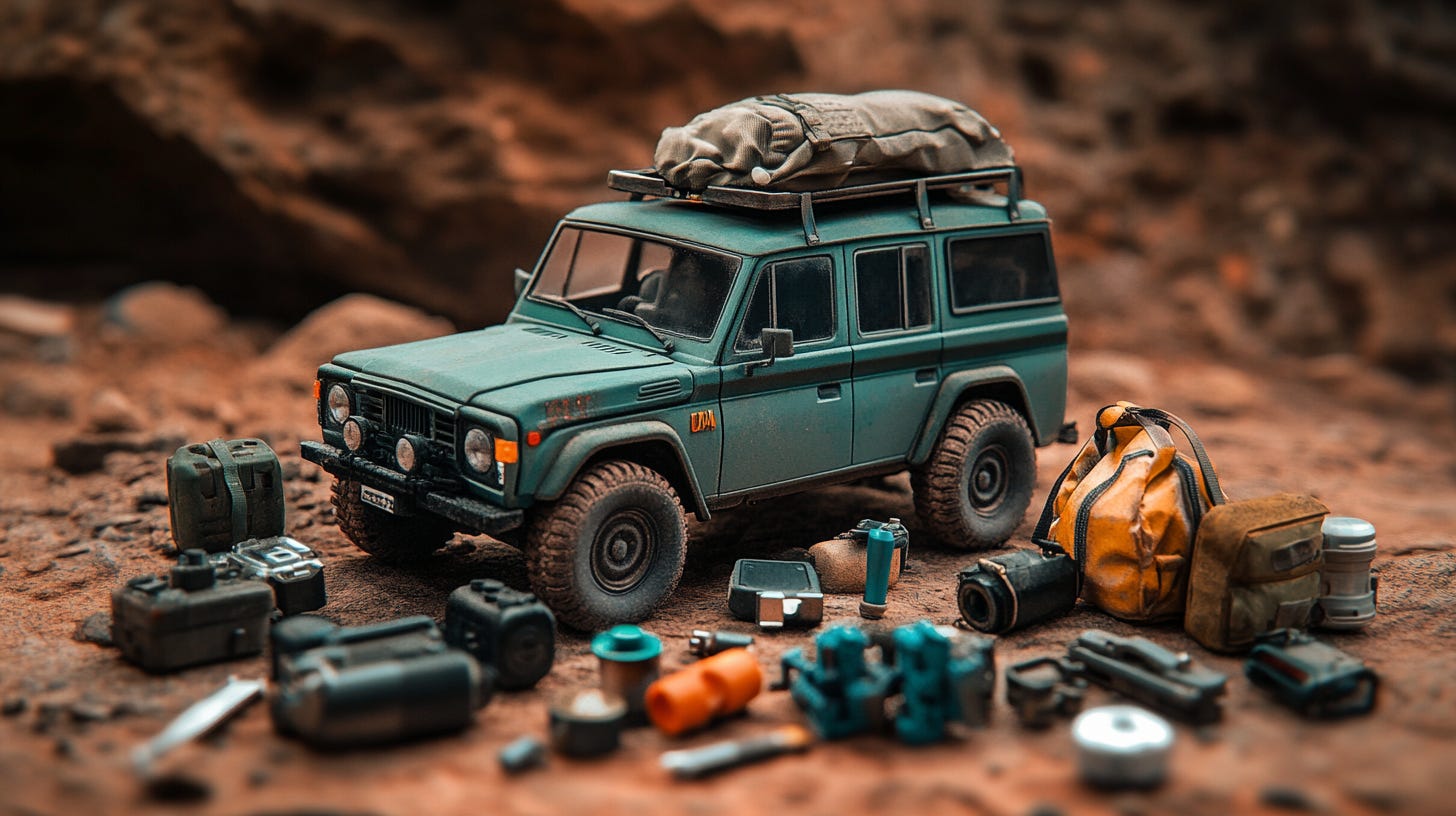





Member discussion